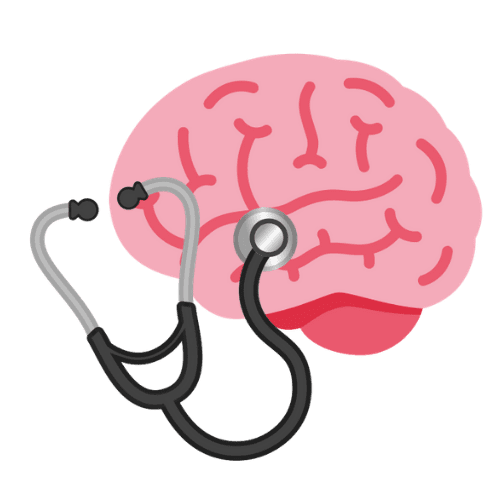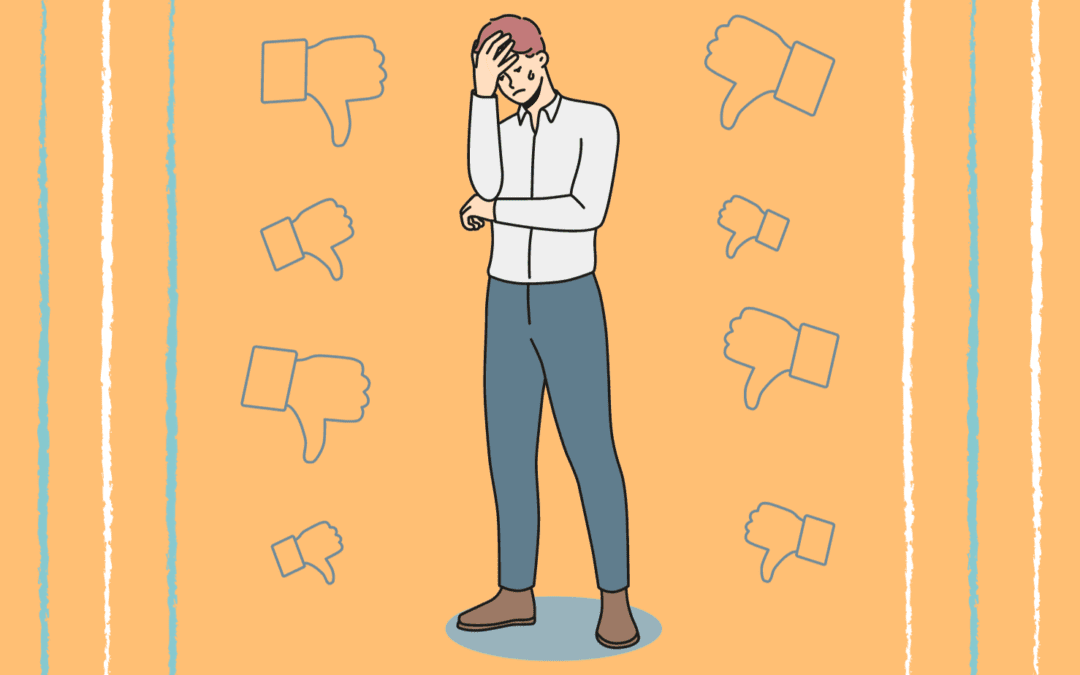Romantic heartbreak, minor arguments with friends, or a text without a smiley at the end – for many people, these feel like punches to the gut. If you have ADHD, they might feel like being hit with a lorry.
This is known as Rejection Sensitivity Dysphoria (RSD), and is part of the emotional dysregulation strongly associated with the disorder. We experience emotions much more strongly than our neurotypical peers, including the feelings of criticism and rejection – whether real, or just perceived.
So what does RSD look like?
You might feel perfectly happy, until a small comment from a friend introduces a niggling worry that you’ve done something to upset them. Within seconds you might have already internalised that negative feeling and become sad and withdrawn – alternatively, you might externalise your response and behave angrily.
RSD makes every small criticism feel completely overwhelming. Constantly feeling like we’re falling short, in the long term, RSD can cause people with ADHD to become perfectionists and people pleasers to compensate for the almost debilitating fear of rejection.
Some of us overachieve and people please to avoid criticism, and ignore our own wishes and wants. Trying and failing might become too painful for some individuals with RSD, leading to avoidance of job interviews, dates, and other things that make rejection a risk. Others deliberately become withdrawn and detached, to avoid the sense of attachment which makes rejection hurt a lot more.
In short, RSD is terrible for our self esteem. It can also affect our relationships with our loved ones.
Why is RSD not talked about more?
RSD is often overlooked as a feature of ADHD in both adults and children, despite only being associated with this disorder so far. Its existence is also considered as still up for debate by some. The DSM-5 (Diagnostic and Statistical Manual of Mental Disorders, 5th Ed.) does not recognise RSD, so there are no official symptoms. This can sometimes make it hard to get a professional diagnosis.
RSD is also often mistaken for other conditions, such as bipolar disorder, but the difference is that episodes of RSD are intense but don’t last as long.
We don’t know yet if RSD can occur without ADHD, or if it occurs as a result of genetics or childhood experiences. Our understanding of RSD is still poor – but it is very real to those who experience it.
Importantly, we must remember that having RSD does not make you “overly sensitive” or “too dramatic”. Your brain makes you feel emotions more intensely than others – and the pain of these emotions is real and extreme. The strength of it also makes it hard to dismiss.
What causes RSD?
The exact biological mechanism of RSD is still not certain, but there are two main theories that may explain the phenomenon.
Firstly, ADHD brains may be coded to react more strongly to negative stimuli (like rejection) as a survival mechanism. A long time ago, this meant that you would concentrate more on the hungry lion running towards you than a nice view in the distance – thus improving your chances of survival.
Secondly, it is well known through research that ADHD brains prefer small rewards now, over a larger one later. This might reflect a problem with our ability to see the bigger picture – we zone in on a minor comment our friend makes, rather than our strong relationship spanning many years.
I often say that ADHD is a disorder of attention dysregulation, not a deficit. We concentrate too much on the negative emotion, making it even more overwhelming. However, telling us to “just forget about it” is not going to help – we’re not actively choosing to concentrate on the bad feeling. Our brain won’t let us do anything else, for the biological reasons described above.
What can I do about RSD?
Experts suggest several tactics to manage an episode of RSD.
- Recognise your emotions, and let yourself feel them without guilt. Although it can be easier said than done, some recommend accepting your emotions and letting them happen to avoid spiralling into perfectionism.
- Try therapy. This can help you develop strategies to cope with strong emotions. Importantly, find a therapist who is experienced in working with people with ADHD.
- Try and reduce your stress overall. RSD is a lot harder to manage when you’re already worried or overwhelmed – when you have RSD, perceived rejection or criticism can often be the straw that breaks the camel’s back.
- Let your loved ones know about your RSD, so they can choose their responses carefully, and be aware that RSD may impact your behaviour.
- Stimulant medication may also help, by improving your ability to shift your focus and concentration.
- Atomoxetine, guanfacine and clonidine, all non-stimulant medications, may also be effective in treating the symptoms of emotional dysregulation.
Sources
Dealing with Rejection Sensitive Dysphoria (RSD) and ADHD: https://www.healthyplace.com/blogs/livingwithadultadhd/2017/11/adhd-and-rejection-sensitive-dysphoria
Emotional dysregulation and Attention-Deficit/Hyperactivity Disorder: https://www.ncbi.nlm.nih.gov/pmc/articles/PMC4282137/
What Is Rejection Sensitive Dysphoria?: https://www.webmd.com/add-adhd/rejection-sensitive-dysphoria
What to know about ADHD and rejection sensitive dysphoria: https://www.medicalnewstoday.com/articles/adhd-rejection-sensitive-dysphoria#summary
Read more about other symptoms and signs of ADHD in our Symptom Spotlight series.

